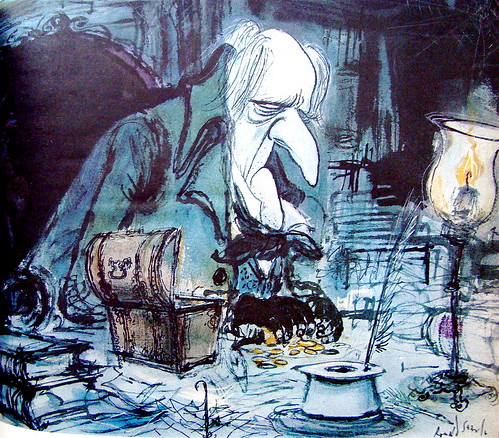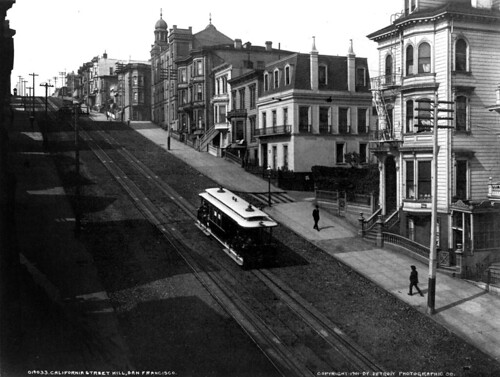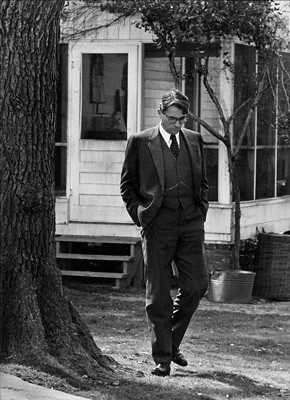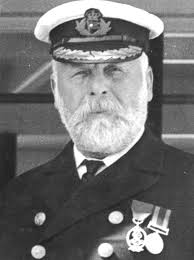 Well, it is that time of the year! Therefore, since it is Christmas time, I decided that it would be more than appropriate to write about a beloved, well-known Christmas character – a character that is a surprising representation of the holidays and a perfect example of someone who started out as a villain and became a hero, all for the joy of the Christmas spirit.
Well, it is that time of the year! Therefore, since it is Christmas time, I decided that it would be more than appropriate to write about a beloved, well-known Christmas character – a character that is a surprising representation of the holidays and a perfect example of someone who started out as a villain and became a hero, all for the joy of the Christmas spirit.
We have all heard about the evil villains who do cruel things and have to be stopped by the heroes so as to bring peace and order back to innocent people – but the villain just keeps coming back time and time again, committing the same crimes, creating the same mayhem, striking fear and hatred in the eyes of the public. However, we also hear about villains who reach, for varying reasons, certain turning-points, causing them to come to the decision that they no longer want to do wrong. Instead, they choose to turn their lives around in hopes of gaining forgiveness and redemption. Some people view such "heroes" as not being legitimate "heroes," but more so as clever villains who lure people into their corners by pretending to have become heroic, only to reveal to them that they are still just as villainous. On the other hand, some people do believe that villains are capable of coming to a life-altering realization in the hopes of legitimately redeeming themselves. In the case of this specific blog post, since it has to do with Christmas, we will assume that our villain-turned-hero became a genuine hero.
We are all familiar with Charles Dickens's classic Christmas story, A Christmas Carol – a story that is chock full of magic and wonder, teaching all kinds of valuable lessons and morals along the way. The main character of the story, Ebenezer Scrooge, (whose name alone puts a probable sour taste in the mouths of those who hear it), is first introduced to readers at the very beginning of the story, sitting in his counting-house on Christmas Eve. Constantly described as a "€¦mean-spirited, miserly old man," Scrooge has absolutely nothing in the way of Christmas spirit and reacts to anyone's attempts at wishing him a Merry Christmas with the notorious line, "Bah! Humbug!" Although he, himself, is incredibly wealthy, Scrooge refuses to donate any money to charity during the holiday season and refuses to spend money on heating coals for the fire, thus causing his humble but poor clerk, Bob Cratchit, to work in the wintry cold. Furthermore, Scrooge's lack of Christmas spirit shines when he forces poor Cratchit to work on Christmas Day.
Once Scrooge returns to his cold, empty apartment later that night, he is visited by the ghost of his dead partner, Jacob Marley, who, as punishment for having lived a life of greed and self-indulgence, is forced to wander the earth, whilst being weighted down by heavy chains and locks. Marley forewarns Scrooge that, throughout the course of the night, each hour on the hour, he will be visited by three spirits in the hopes of helping him to turn his life around in order to prevent sharing the same fate as Marley. Scrooge, although startled, thinks nothing of the bizarre visit and drifts off to sleep.
Like clockwork, each hour on the hour, the spirits start to visit Scrooge. The first one, the Ghost of Christmas Past, takes Scrooge back in time to past Christmases. While seeing his childhood, Scrooge starts to realize everything he sacrificed in his life because of his intense greed and unrelenting love for money. Scrooge is especially moved and emotionally-affected as he watches his fiancée leave his young adult self and sees that he does not go after her. (Scrooge is invisible to all of the people who he sees on his journeys with the spirits). Deeply saddened, Scrooge is returned to his room only to, one hour later, be visited by the next spirit, the Ghost of Christmas Present. It is during this journey that Scrooge views Christmas as it will happen that very year. Scrooge comes face-to-face with Bob Cratchit's large and jovial family sitting down to a Christmas dinner that is far too small and insufficient for the large crowd of people. Scrooge also sees Cratchit's crippled son, Tiny Tim, for whom the family, (because of the small salary that Scrooge provides to Cratchit), does not have enough money for surgery. Scrooge is also brought to the Christmas party that his nephew, Fred is having – and to which Scrooge was actually invited and declined the invitation. He sees how much fun everyone is having and everything on which he is missing out. Lastly, Scrooge encounters the Ghost of Christmas Future, (or the Ghost of Christmases Yet to Come). This mute spirit shows Scrooge a variety of different images and events that are all related to the recent death of an "€¦unnamed man" – a man who was rich, but never shared any of his riches with anybody and showed nobody the slightest bit of mercy; therefore, it seemed as though not a single person was mourning this mysterious man's death. Scrooge is soon led to a graveyard only to see a headstone with his name on it – the unnamed, stingy man was him! Scrooge, therefore, begged with the spirit to alter his fate and save him, promising to "€¦renounce his insensitive, avaricious ways" and to honor Christmas and everything for which it stands.
The next thing Scrooge knows, he is back home, safe in his bed, on Christmas Morning. Now, the once bitter, selfish man miraculously becomes grateful and "€¦overwhelmed with joy by the chance to redeem himself." He, therefore, starts performing touching acts of kindness – he donates large amounts of money to charities, attends his nephew's Christmas party, and, sends a giant turkey over to the Cratchit house. (He also decides to give Cratchit the day off and he even makes a personal visit over to the Cratchit house to spread his newfound Christmas cheer). Not only does Scrooge begin and continue treating "€¦his fellow human beings with kindness, generosity, and, warmth," he does so while honoring Christmas "€¦with all [of] his heart."
Not only does the story of A Christmas Carol stress the importance of appreciating what one has, it also emphasizes the value of giving to the less-fortunate and those in need. It is probable that with the creation of such a menacingly selfish character as Ebenezer Scrooge, Charles Dickens hoped to illustrate that "€¦change is possible, [no matter how] set we are in our ways." In other words, Dickens was showing that no matter how miserable or "hard-hearted" a person is, there is hope that he or she can be reformed. Therefore, with the creation of Scrooge, Dickens showcased that even the most "€¦self-serving, insensitive people can be converted into charitable, caring, and socially conscious members of society" – and with the inclusion of each of the three spirits within the story, "Warmth, generosity, and, overall goodwill [overcame] Scrooge’s bitter apathy as he encounters and learns from his memory, [understands] the ability to empathize, and, [realizes] his fear of death." In a nutshell, Ebenezer Scrooge is able to go from being a coldhearted, lonely man to a vibrant, charitable man overnight, literally. He received his wakeup call and reached his turning point during a series of life-reflections and a string of dug-up memories. Whether the encounters were real or merely a very vivid dream, they were still enough to spark a desire to change in an extremely rigid man – thus showing that even the most selfish and villainous of individuals have the ability to redeem themselves and change for the better. In this case, this transformation causes a strong desire to help people and make positive contributions in their lives – hence, a "villain-turned-hero."
Below is a video clip taken from the 1999 version of A Christmas Carol, starring Patrick Stewart. This clip is from the end of the movie during which it is Christmas Day and Ebenezer Scrooge begins his new, charitable, and, gratifying life.
[kml_flashembed movie="http://www.youtube.com/v/JMvl0UTY3ho" width="425" height="350" wmode="transparent" /]




